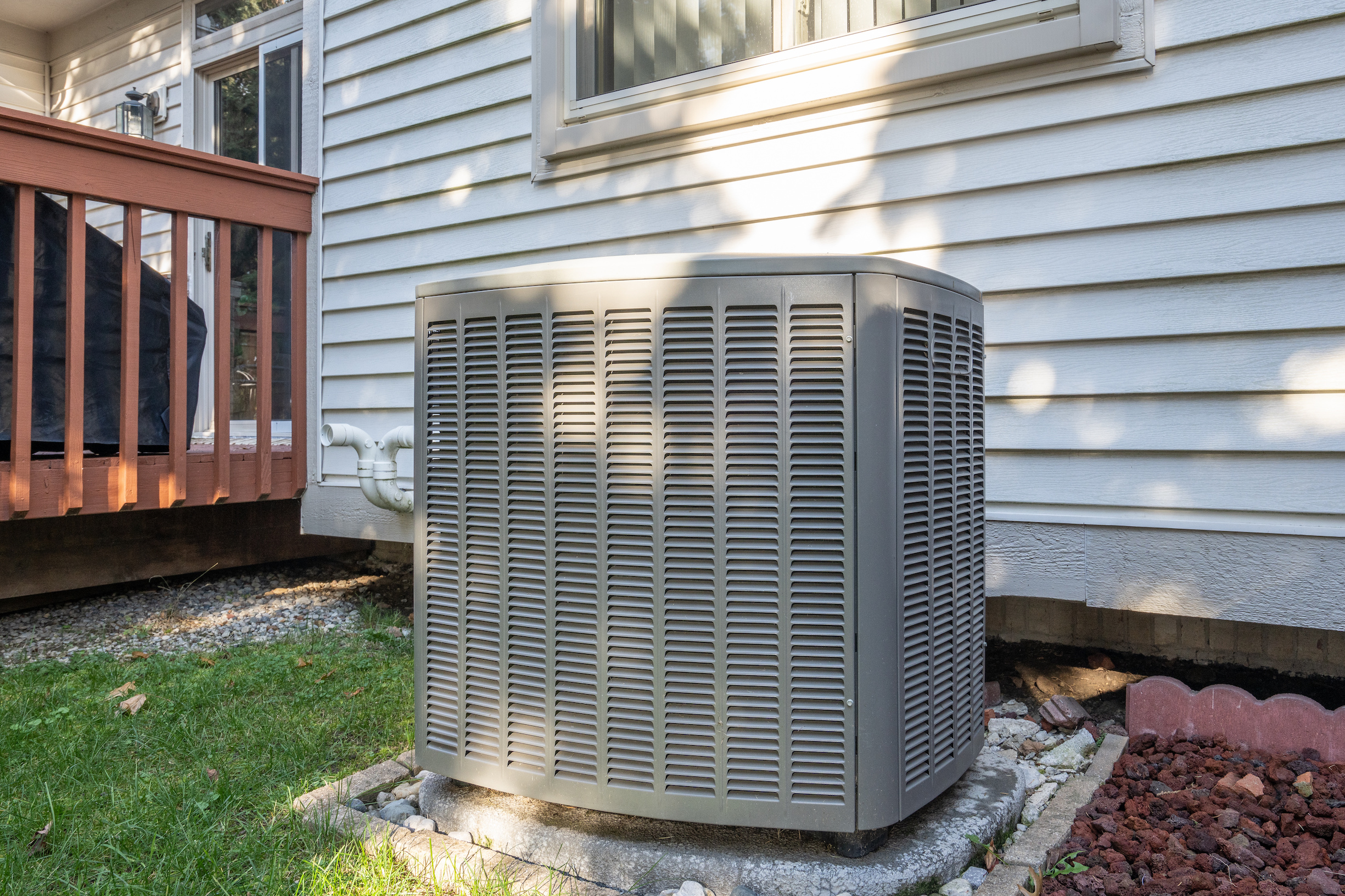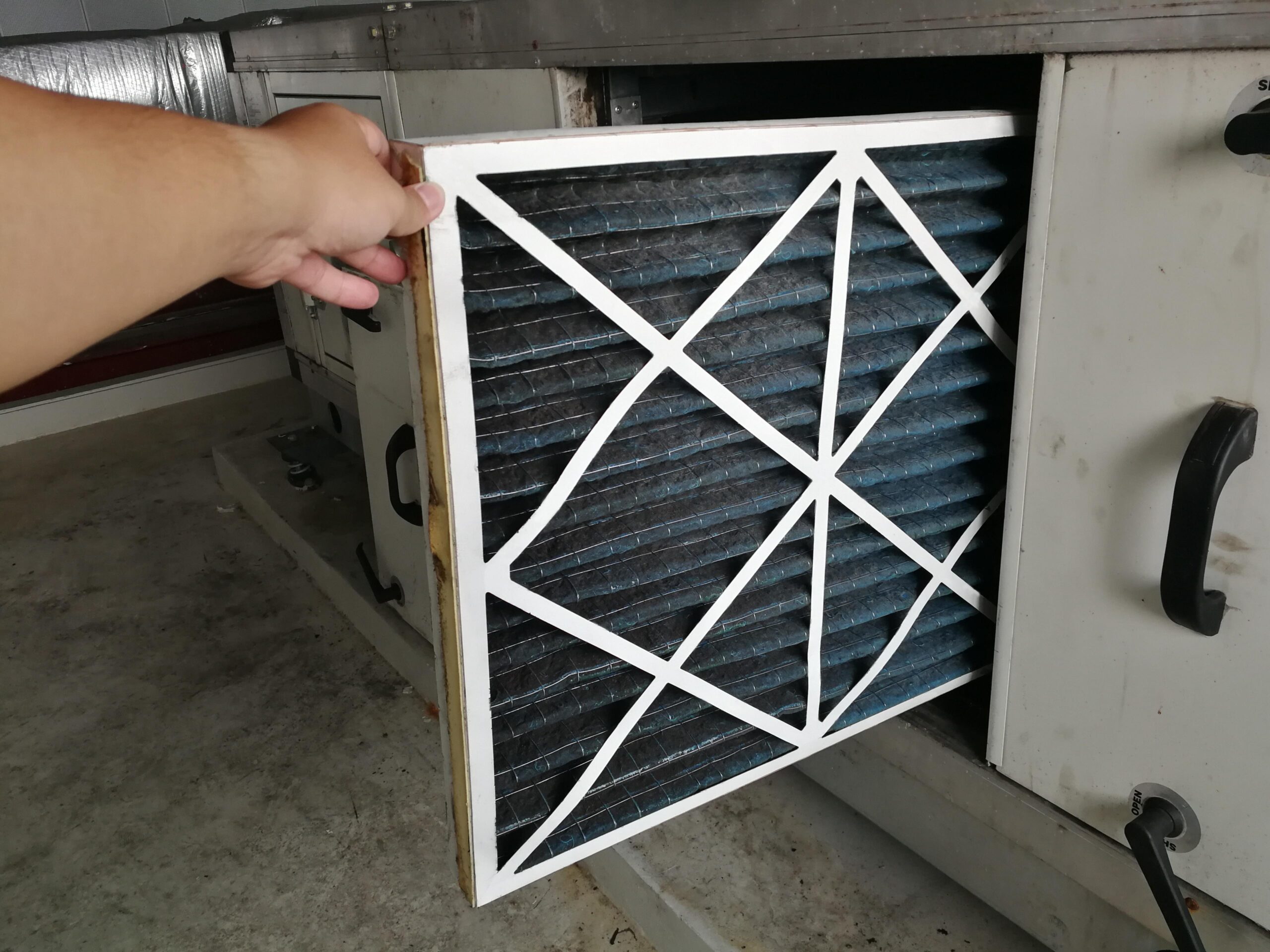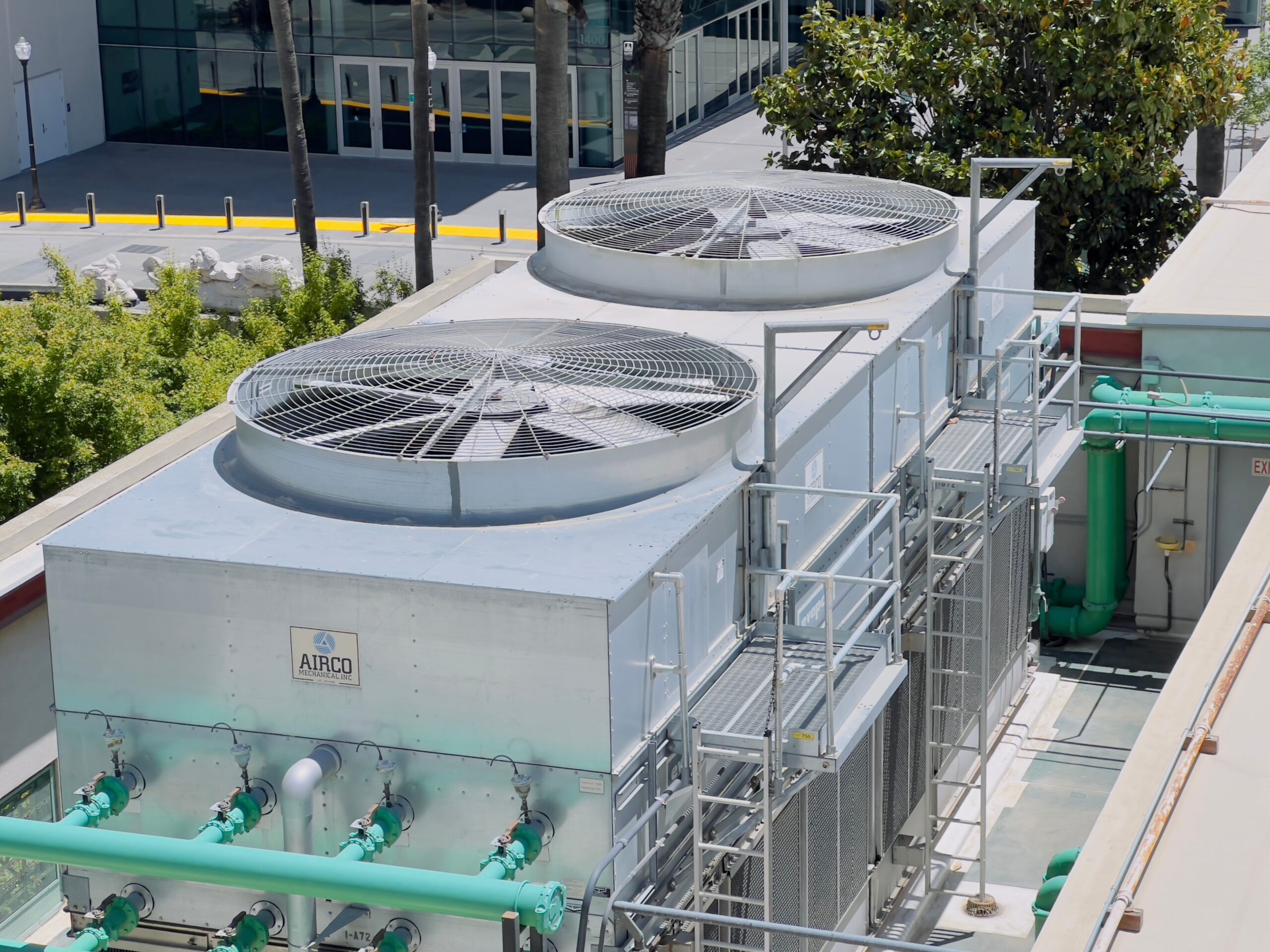Choosing the Right Size AC System for Your Home

Selecting the right size air conditioning (AC) system is a crucial decision that will significantly impact your home’s comfort and energy efficiency. As HVAC professionals, we are frequently asked, “What size AC do I need?” Unfortunately, homeowners have many misconceptions about this decision, thinking the bigger the unit, the better it will work or that simply referring to the home’s square footage is enough information to select the right air conditioners for the HVAC system. In this guide, we’ll explore how to choose the right size HVAC system for your home, common misconceptions, the importance of exploring your home’s diverse characteristics, manufacturer myths, and how your choices affect comfort and efficiency.
Beware the Trap: Why Square Footage Alone Isn’t Enough
One common pitfall when shopping for AC systems is relying solely on an AC square footage sizing guide. The size of your home alone does not determine the appropriate unit. For proper air conditioner sizing, it’s crucial also to examine vital factors such as window area, home design, and your local climate. For instance, a one-story home may require a larger unit than a two-story one of the same size.
Newer homes with larger windows may need more cooling capacity than older ones. “More recently built homes have an open feeling, including larger windows, compared to typical homes built 35 or 40 years ago. The cooling load related to window area is often half or more of the total calculated cooling load. A bedroom window that is twice as wide and twice as tall as would have been used in a 40-year-old house is four times the square footage.”
It’s also important to consider which direction the windows are facing. According to Ed, “An enclosed 12×20 patio with large windows on the west side of a home in Allentown could require 2 tons of cooling capacity. On the east side of the home, it might only require half that amount.” Contractors or anyone looking to install a new AC or HVAC system need to adjust for various factors and not just assume the same unit will work based on other similar homes.
Diverse Home Characteristics
Every home is unique, even if they share a similar floor plan. Considering its distinctive characteristics is paramount in choosing the right AC unit. In addition to window size and the home’s orientation to the sun, the insulation quality will also determine how hard the HVAC system is expected to work and provide a cooling solution that’s tailored to your specific needs.
Manufacturer Misconceptions
Some air conditioner manufacturers attempt to simplify customer selection by perpetuating the square footage myth. This oversimplification can lead to suboptimal choices for homeowners, hindering indoor comfort and the home’s energy efficiency. Manufacturers should also provide information regarding the unit’s cooling capacity. An experienced AC and HVAC contractor will calculate your home’s cooling load in order to determine the proper system.
Comfort and Efficiency
Choosing the right AC unit directly impacts your home’s comfort and energy efficiency. Purchasing an AC system that is too large can result in expensive upkeep while getting a system that’s too small could have you fighting to keep your home properly cooled. An AC unit constantly working to reach your desired temperature can also result in premature wear, leading to more repairs or early replacement. In addition to the difficulty of maintaining a comfortable temperature or cooling too quickly, the wrong size unit may also fail to adequately dehumidify the air indoors.
Tips for Choosing the Right Capacity AC Unit for Your Home
Evaluate Your Home
The first step to choosing the right capacity AC unit for your home is to consider the square footage, climate of your home’s location, the home’s insulation quality, and number of windows and their sizes. The national standard load calculation procedure, referred to as the Manual J calculation, was developed by the Air Conditioning Contractors of America (ACCA), and includes factors such as:
- Climate: Homes in warmer climate areas will run AC units more than just during the summer months, meaning they may require a higher SEER rating. View this climate zone fact sheet to determine how the zones will affect your AC’s square footage range.
- Home Exterior: The home’s color and the material used on the exterior can affect the amount of heat absorption and reflection, influencing how hard the HVAC system will need to work.
- The Home’s Orientation: Homes that face south or west have more sun exposure during the summer, typically taking longer to cool. Those that face north or east will generally experience less direct sun exposure, making them cooler.
- Insulation: Your home’s insulation keeps heat out and cool air in during summer (cool air out and heat in during the winter). A well-insulated home will keep the AC unit running more efficiently. A lack of insulation could mean an AC system has to work harder.
- Windows: Having single-pane windows, triple-pane windows, low-emissivity film-coated windows, or an abundance of windows around the home can result in an energy loss that requires more work from your AC. Having energy-efficient windows in the home can lower the tonnage requirement requirement on the unit.
- Ceiling Height: Homes built with high ceilings have to account for more volume in the room over one with a standard 9-foot ceiling height. A simple rule of thumb to estimate the size of AC unit you’ll need is to calculate one or two BTUs higher than the recommended number for a room with similar square footage.
- Heat-Generating Appliances: Kitchens and laundry rooms have appliances that generate heat, requiring more BTUs to efficiently cool them down. Consider the kinds of appliances you have, how many, and how often they’re used to help determine AC system usage expectations.
This is, of course, not a complete list of every factor considered, but is a great place to start. The Manual J calculation is typically used in new construction homes and may not always be necessary in replacement situations. However, anyone looking to have a more detailed load calculation, especially if the original unit was incorrectly sized, should look to have a Manual J calculation performed.
Use A Reliable AC Sizing Calculator
Using an air conditioner size calculator is a good starting point in determining the right size air conditioner you need. As with any tool available online, not every calculator is reliable. When determining an AC sizing calculator’s reliability, consider the following factors:
- Input Accuracy: A reliable calculator should ask for detailed information about the home, including square footage, insulation quality, number and size of windows and doors, local climate, home orientation, and more.
- Professional Endorsement: Verify if the calculator is endorsed or recommended by credible HVAC professionals. Reliable calculators will often be backed and supported by industry experts and refer to reputable resources, such as the Energy Star guidelines.
- Transparency and Expectations: A trustworthy calculator should provide transparent explanations for the sizing recommendations it offers and help users understand why a particular capacity is suggested based on provided inputs.
- Up-to-Date Information: Ensure the calculator is based on the latest industry standards and guidelines. Outdated information can result in inaccurate recommendations.
- Cross-Verification: Take the time to cross-verify the results you receive with other calculators or with a professional to ensure consistency and reliability.
- User Reviews and Ratings: Look for user reviews and ratings of the calculator. Positive feedback from users who have successfully used the calculator can be a good indicator of reliability.
While an AC sizing calculator from a reputable source can provide an estimate, seeking professional assistance is the best way to get an accurate calculation.
Are AC Sizing Charts Reliable?
AC charts offer a quick glance at the general specifications of a particular model or system. While this information can be useful, it should not be used as the sole determining factor for buying an AC unit. These won’t consider the specific factors that will influence the buying decision that would be needed during calculations. However, if you have already performed the calculations and verified them with a professional, you could potentially refer to an AC chart to narrow down different models that could work for your needs.
Factor in Outdoor Unit Specifications
In your HVAC system, the specifications of the outdoor AC unit will make a big difference. The unit’s cooling capacity, or how much cooling the AC unit can provide, is measured in tons or British Thermal Units (BTU), not the unit’s physical size. AC tonnage and BTUs are cooling capacity measurements, and which measurement is used will vary per manufacturer and contractor. BTUs specifically reference how much heat an AC can remove from a home within an hour. One ton equals 12,000 BTU/hour, so a 2.5-ton unit would have the same cooling capacity as a 30,000 BTU unit.
The AC unit’s efficiency is measured using a SEER or SEER2 rating. The higher the SEER rating, the less electricity it consumes to cool your home. SEER2 units are those purchased after January 1, 2023, and will consume roughly 35% less electricity than comparable SEER units. This does not mean, however, that a larger unit will offer better comfort or energy efficiency for your home. You need to calculate the cooling load to accurately determine how much cooling capacity your home needs to choose the proper size of the air conditioner.
Are Bigger AC Units Better?
According to Ed, “Bigger is not better. Making sure it is bigger than needed is not a solution to not calculating the load.” Unfortunately, some home builders will simply opt for the same model AC unit across the board, or select a larger one than necessary to overcompensate.
Not only that, but larger units may not provide the same required level of humidity control. “Humidity removal is a key component of comfort in the cooling season. In general, newer units of a certain capacity remove less humidity than older, less efficient units,” says Ed. If you’re in the market to replace an existing AC unit, it’s important to note that just because the old unit kept humidity levels comfortable, it doesn’t mean you should simply opt for a new model with the same specifications.
“In many cases, the original unit was oversized by the home builder’s installer who believed in making it bigger rather than risking it being too small. The old inefficient unit with a very cold indoor coil removed more humidity and was comfortable. The new unit will not hide the sizing error because the indoor coil is not as cold and will remove less humidity.”
Seeking an experienced HVAC technician’s calculation is essential because, as Ed states, “Most contractors replace existing units with the same size without performing a load calculation,” which, unfortunately, will lead to poor performance.
Consult the Professionals at Jack Lehr for the Right AC System for Your Home
Choosing the right AC system involves various considerations. It’s important to consult with an HVAC professional to determine the correct size to accommodate your home’s unique needs.
For expert guidance on choosing, installing, and maintaining your AC system, contact Jack Lehr or schedule your service online and ensure your home stays cool and comfortable all year.
Questions or need more information?
Contact Us


We Treat You Like Family
When you choose Jack Lehr Heating Cooling & Electric, you’ll benefit from our:
When you choose Jack Lehr Heating Cooling & Electric, you’ll benefit from our:
- 50+ years of experience
- Our installation and service guarantees
- Top-of-the-line products
- Respect for your home or business
- Financing options
- And much more!



